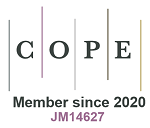The Effectiveness of Group Therapy on Rescuing Patients with Cancer
Abstract
Keywords
References
Ali Pour, A. "An Introduction to health psychology." Tehran: Payam Noor University (2011): 120-88.
Mardani Hamula, M. And Shahrakyani unit, AS. “Investigating the Relationship between Mental Health and Quality of Life in Cancer Patients.” Scientific Journal of Hamadan University of Medical Sciences & Health Services, Volume 2, (2009): 40-33.
Lee, Stephanie J., Diane Fairclough, Susan K. Parsons, Robert J. Soiffer, David C. Fisher, Robert L. Schlossman, Joseph H. Antin, and Jane C. Weeks. "Recovery after stem-cell transplantation for hematologic diseases." Journal of Clinical Oncology 19, no. 1 (2001): 242-252.
Abdie N. And sanctification, m. And Cash, S. “The Effectiveness of Omid Therapy on Cancer Patient, A Case Study.” Armaghan Danesh Journal, 14 (3), (2009): 13-21.
Affleck, Glenn, and Howard Tennen. "Construing benefits from adversity: Adaptotional significance and disposltional underpinnings." Journal of personality 64, no. 4 (1996): 899-922.
Nowotny, M. L. "Assessment of hope in patients with cancer: development of an instrument." In Oncology nursing forum, vol. 16, no. 1, (1989): 57-61.
Anthony, J., “Health Psychology”, Routledge, 1999.
Snyder, Charles Richard, ed. Coping: The psychology of what works. Clarendon Press, 1999.
The main principle, n. Neshat's friend, h. And Keyantari, M., “The Relationship between Hope Power and Quality of Life in Patients with Hypertension in Isfahan”, A National Significance Conference on Life, (2009).
Bagheri Zanjani Asl Monfared, L., and Gh Entesar Foumany. "The effectiveness of group based hope-therapy on increasing resilience and hope in life expectancy in patients with breast cancer." Journal of Health Promotion Management 5, no. 4 (2016): 56-62.
Sometimes, M. And somebody, u. Vergadi, A., “The Impact of Group Therapeutic Therapy on the Life Expectancy and General Health of Cancer Patients”, Journal of Nursing and Midwifery Journal of Nursing, No. 76, (2010): 84-92.
Farhadi, AS. And Movahedi and Movahedi, M., :The Effectiveness of Group Therapy on Quality of Life and Mental Health and Hope in Cancer Patients”, Lorestan University, 16 (1), (2014): 32-42.
Kallali, F, “The effect of hope therapy on patient resiliency”, Master thesis, Allameh Tabatabaei University, (2012).
Khosrowi Zadeh, B., “Investigating the Relationship Between Hope and Quality of Life on HIV-positive people”, Master thesis of Rehabilitation counselling, University of Social Welfare and Rehabilitation Sciences, Tehran, (2010).
Ali al-Dini, Z., “The Effect of Therapeutic Hope on Depression in Isfahan University Students”, Master's Degree in Psychology, Isfahan University, (2008).
Utsey, Shawn O., Joshua N. Hook, Nicole Fischer, and Benita Belvet. "Cultural orientation, ego resilience, and optimism as predictors of subjective well-being in African Americans." The Journal of Positive Psychology 3, no. 3 (2008): 202-210.
Strauss, Bernhard, Christina Brix, Sebastian Fischer, Karena Leppert, Jürgen Füller, Bernd Roehrig, Christine Schleussner, and Thomas G. Wendt. "The influence of resilience on fatigue in cancer patients undergoing radiation therapy (RT)." Journal of cancer research and clinical oncology 133, no. 8 (2007): 511-518.
Nelson, Audrey E., Joan Haase, Mary Jo Kupst, Laura Clarke-Steffen, and Jill Brace-O’Neill. "Consensus statements: Interventions to enhance resilience and quality of life in adolescents with cancer." Journal of Pediatric Oncology Nursing 21, no. 5 (2004): 305-307.
Groopman, Jerome. The anatomy of hope: How people prevail in the face of illness. Random House Trade Paperbacks, 2005: 14(2): 79-91.
Fallah, R And Gozzari, M. And the story, M. And Zahir al-Din, AS. And Mousavi, M. And Akbari, MA, “The Effectiveness of Group-Based Spiritual Intervention on Promoting Hope and Mental Health in Cancer Women”, Thoughts and Behavior, Volume 5, Issue 19, (2011).
Connor, Kathryn M., and Jonathan RT Davidson. "Development of a new resilience scale: The Connor‐Davidson resilience scale (CD‐RISC)." Depression and anxiety 18, no. 2 (2003): 76-82.
DOI: 10.28991/esj-2017-01118
Refbacks
- There are currently no refbacks.
Copyright (c) 2017 Hossein Malekzadeh Fini, Hassan Heydari, Seyyed Ali Al Yassin






